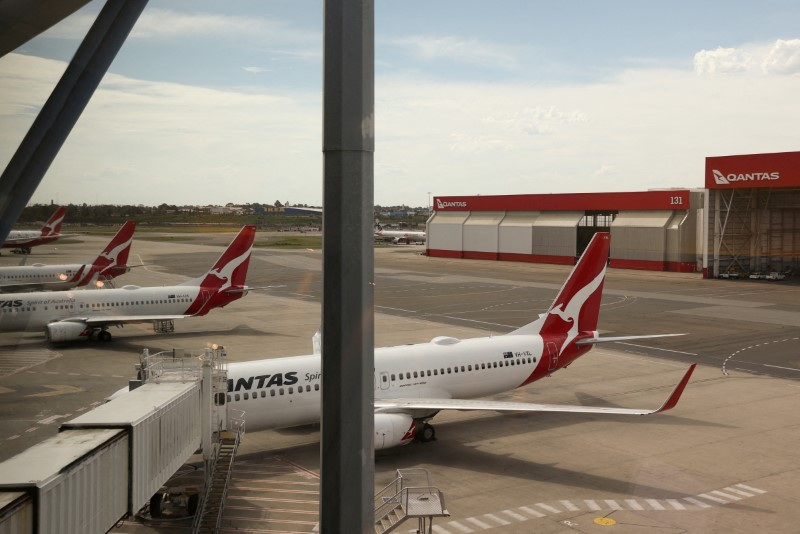Russia is being accused of jamming GPS signals across northern Europe, putting airlines on alert to possible flight disruptions. The rising frequency of these incidents is also shining a spotlight on recent trends in electronic warfare.
Russia accused of meddling in the GPS systems of Baltic Sea countries
Issued on: Modified:
Finland's national carrier Finnair announced on Monday that none of its aircraft will be landing at Tartu airport, Estonia’s second-largest, over the next month due to a rise in incidents involving the airport's GPS signal in the Baltic Sea region.
Tartu airport is one of the few in the region that still uses GPS signals to help land aircraft; if the signal is lost, it is impossible for aircraft to land safely.
Last week, two Finnair flights approaching Tartu had to turn back at the last minute and return to Helsinki because they were unsure if they could rely on the airport’s GPS.
Estonia quickly accused Russia of involvement. Moscow “knows very well that the interference they are causing is very dangerous for our air traffic”, Estonian Foreign Minister Margus Tsahkna said on Monday.
Estonia quickly accused Russia of involvement. Moscow “knows very well that the interference they are causing is very dangerous for our air traffic”, Estonian Foreign Minister Margus Tsahkna said on Monday.
- Russia has been accused of being behind a surge in incidents linked to GPS signal interference over the last year or so. Sweden has even called on NATO to act.
Tried-and-true techniques
“GPS signals have been jammed since the early 1990s,” said Alexandre Vautravers, an arms specialist and editor of the Swiss Military Review.
The techniques involved are nothing new. Russia is suspected of engaging in large-scale GPS jamming and "spoofing" in the Baltic Sea and around the Denmark Strait.
Russia has been accused of carrying out both types of attack in the Baltic Sea region.
Beware of Tobol
Russia is believed to have around 10 Tobol GPS jamming systems, with one of them based in Kaliningrad.
Like the Swiss-army knife of electronic warfare, “Tobol is supposed to be able to be used to intensively jam GPS signals and for more sophisticated interference, such as spoofing,” Stupples said.
Risk of economic chaos?
Despite the many warnings issued in recent weeks, experts say the risk to aviation is still limited – at least for now
- A plane carrying British Defense Secretary Grant Schapps suffered a GPS system failure over Kaliningrad, a Russian enclave between Poland and Lithuania, in March.
- The European Union Aviation Safety Agency even held a summit in January to discuss the rise in GPS-related incidents.
“GPS signals have been jammed since the early 1990s,” said Alexandre Vautravers, an arms specialist and editor of the Swiss Military Review.
The techniques involved are nothing new. Russia is suspected of engaging in large-scale GPS jamming and "spoofing" in the Baltic Sea and around the Denmark Strait.
- The most basic form of interference consists of “transmitting on the same frequency as the GPS beacons, but with a stronger signal [to] prevent the devices from obtaining the information transmitted from the GPS satellites to calculate their position”, Vautravers explained.
- The next stage – known as "spoofing" – involves “manipulating the radio signals in order to deceive the user about their location or the time transmitted by the satellites”, said Tegg Westbrook, a researcher at the University of Stavanger who has written on GPS interference techniques.
Beware of Tobol
Russia is believed to have around 10 Tobol GPS jamming systems, with one of them based in Kaliningrad.
- This device, dubbed Moscow’s “secretive weapon” by the Washington Post, was “used extensively by Russia at the start of the war in Ukraine”, noted Vautravers.
Like the Swiss-army knife of electronic warfare, “Tobol is supposed to be able to be used to intensively jam GPS signals and for more sophisticated interference, such as spoofing,” Stupples said.
It could even be used for what he calls “intelligent spoofing”, the ultimate in GPS signal interference.
- While simple spoofing consists of “transmitting false data to the user instead of the real signal, intelligent spoofing involves corrupting the original signal, which has been intercepted and then modified”, Stupples said.
- It then becomes much more difficult for the victim to detect the attack.
With Tobol installed in Kaliningrad – something Russia has never officially acknowledged – Moscow would be able to step up electronic warfare across the region.
Risk of economic chaos?
Despite the many warnings issued in recent weeks, experts say the risk to aviation is still limited – at least for now
GPS jamming “is not going to have catastrophic consequences for air traffic in most cases”, said Westbrook.
Stupples agreed. “Pilots don't rely solely on GPS as they have other navigation aids,” he said.
Stupples agreed. “Pilots don't rely solely on GPS as they have other navigation aids,” he said.
In fact, “it would take very special circumstances – such as a night flight in very bad weather conditions and with a very tired pilot – for this interference to lead to serious incidents”, Westbrook said.
Stupples said the issue at hand is “more a question of nuisance, and of Russia demonstrating its know-how”.
Stupples said the issue at hand is “more a question of nuisance, and of Russia demonstrating its know-how”.












No comments:
Post a Comment